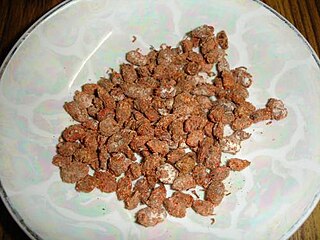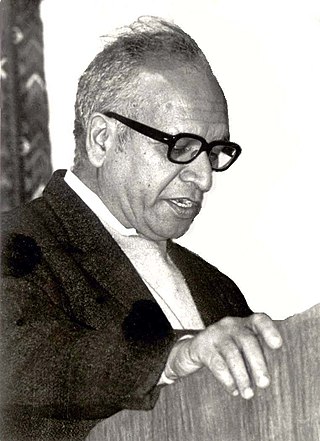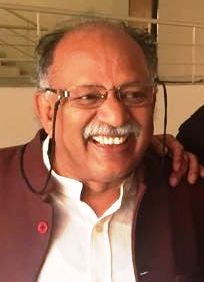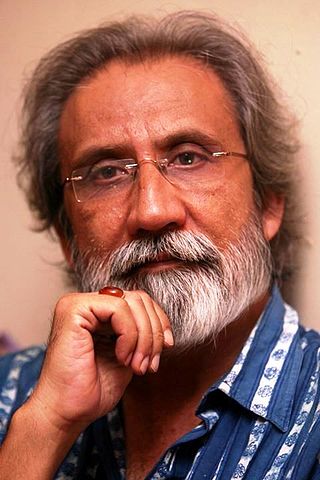The historiography of science or the historiography of the history of science is the study of the history and methodology of the sub-discipline of history, known as the history of science, including its disciplinary aspects and practices and the study of its own historical development.

Unani or Yunani medicine is Perso-Arabic traditional medicine as practiced in Muslim culture in South Asia and modern day Central Asia. Unani medicine is pseudoscientific. The Indian Medical Association describes Unani practitioners who claim to practice medicine as quacks.

Bipan Chandra was an Indian historian, specialising in economic and political history of modern India. An emeritus professor of modern history at Jawaharlal Nehru University, he specialized on the Indian independence movement and is considered a leading scholar on Mahatma Gandhi. He authored several books, including The Rise and Growth of Economic Nationalism.

Romila Thapar is an Indian historian. Her principal area of study is ancient India, a field in which she is pre-eminent. Thapar is a Professor of Ancient History, Emerita, at the Jawaharlal Nehru University in New Delhi.

Irfan Habib is an Indian Marxist historian of ancient and medieval India, following the methodology of Marxist historiography in his contributions to economic history. He identifies as a Marxist and is well known for his strong stance against Hindutva and Islamic fundamentalism. He has authored a number of books, notably the Agrarian System of Mughal India, 1556–1707, an Atlas of the Mughal Empire: Political and Economic Maps With Detailed Notes, and an Atlas of Ancient Indian History. As the general editor, he is also the driving force behind the A People's History of India series, volumes of which continue to be released.

Deepak Kumar was a professor of History of Science and Education, at Jawaharlal Nehru University, New Delhi, India. Kumar lectured at numerous universities within India and abroad, held visiting fellowships at the universities of Cambridge, London, Leiden, The Smithsonian Institution, etc. and has also taught at Wisconsin University, Madison, USA, and York University in Toronto, Canada.

Ram Sharan Sharma was an Indian Marxist historian and Indologist who specialised in the history of Ancient and early Medieval India. He taught at Patna University and Delhi University (1973–85) and was visiting faculty at University of Toronto (1965–1966). He also was a senior fellow at the School of Oriental and African Studies, University of London. He was a University Grants Commission National Fellow (1958–81) and the president of Indian History Congress in 1975. It was during his tenure as the dean of Delhi University's History Department that major expansion of the department took place in the 1970s. The creation of most of the positions in the department were the results of his efforts. He was the founding Chairman of the Indian Council of Historical Research (ICHR) and a historian of international repute.
S. N. Balagangadhara is a professor emeritus of the Ghent University in Belgium, and was director of the India Platform and the Research Centre Vergelijkende Cutuurwetenschap.

Prabhat Patnaik is an Indian Marxist economist and political commentator. He taught at the Centre for Economic Studies and Planning in the School of Social Sciences at Jawaharlal Nehru University in New Delhi, from 1974 until his retirement in 2010. He was the vice-chairman of Kerala State Planning Board from June 2006 to May 2011.

Tapan Raychaudhuri was a British-Indian historian specialising in British Indian history, Indian economic history and the History of Bengal.
Barun De was an Indian historian. He served as the first professor of social and economic history of the Indian Institute of Management, Calcutta, founder-director of the Centre for Studies in Social Sciences, Calcutta and the Maulana Abul Kalam Azad Institute of Asian Studies, Kolkata and as the honorary state editor for the West Bengal District Gazetteers. He was chairman of the West Bengal Heritage Commission.
Hermann Kulke is a German historian and Indologist, who was professor of South and Southeast Asian history at the Department of History, Kiel University (1988–2003). After receiving his PhD in Indology from Freiburg University in 1967, he taught for 21 years at the South Asia Institute of Heidelberg University (SAI).
Ramchundra (Ramachandra Lal) (Devanagari,रामचन्द्र लाल) (1821–1880) was a British Indian mathematician. His book, Treatise on Problems of Maxima and Minima, was promoted by mathematician Augustus De Morgan.
David Vumlallian Zou is a historian of modern South Asia with special interest in north-east India. His research interests reflect an interdisciplinary orientation that includes colonial history, book history, gender history, ethno-history, indigenous identities and historical geography.

Mridula Mukherjee is an Indian historian known for her work on the role of peasants in the Indian independence movement. She is an ex-chairperson of the Centre for Historical Studies at the Jawaharlal Nehru University, Delhi, and former director of the Nehru Memorial Museum and Library.

Syed Irfan Habib is an Indian historian of science and public intellectual. He was the former Abul Kalam Azad Chair at the National Institute of Educational Planning and Administration. His intellectual collaboration with Dhruv Raina as historians at the National Institute of Science, Technology and Development Studies (NISTADS), New Delhi in the 1990s culminated in the publication of a series of research articles on the cultural redefinition of modern science in colonial India. They also edited a volume together on Joseph Needham, the section on "Science in Twentieth South and South-East Asia" for volume 7 of UNESCO's History of Mankind Project, and a reader on social history of science in India. As an author, his works have been subject to mostly positive critical reception.
Science and technology studies (STS) in India is a fast growing field of academic inquiry in India since the 1980s. STS has developed in the country from the science movements of the 1970s and 1980s as well as the scholarly criticism of science and technology policies of the Indian state. Now the field is established with at least five generations of scholars and several departments and institutes specialising in science, technology and innovation policy studies.

Valerian Rodrigues is an Indian political scientist. He is known for his influential work on Babasaheb Ambedkar, and for his formulations of themes in Modern Indian Political Thought. Rodrigues has made substantial contributions to the debate on the working of the Indian Parliament, constitutionalism in India, and agrarian politics in India. As a Professor at the Centre for Political Studies at Jawaharlal Nehru University (JNU), New Delhi, he was popular for his lectures on Indian Political Thought and Intellectual History, and critically reading the same through political concepts of modernity, secularism and nationalism. Before joining JNU, Rodrigues taught at the Department of Political Science at Mangalore University, Karnataka, India.

Historiography is the study of the methods of historians in developing history as an academic discipline, and by extension is any body of historical work on a particular subject. The historiography of a specific topic covers how historians have studied that topic using particular sources, techniques, and theoretical approaches. Historiography is defined as "the study of the way history has been and is written – the history of historical writing", which means that, "When you study 'historiography' you do not study the events of the past directly, but the changing interpretations of those events in the works of individual historians."
Heeraman Tiwari is a Professor of Centre for Historical Studies, School of Social Sciences, at the Jawaharlal Nehru University, New Delhi and his core areas of study include Sanskrit Language, Literature, Intellectual History and Philosophy.












